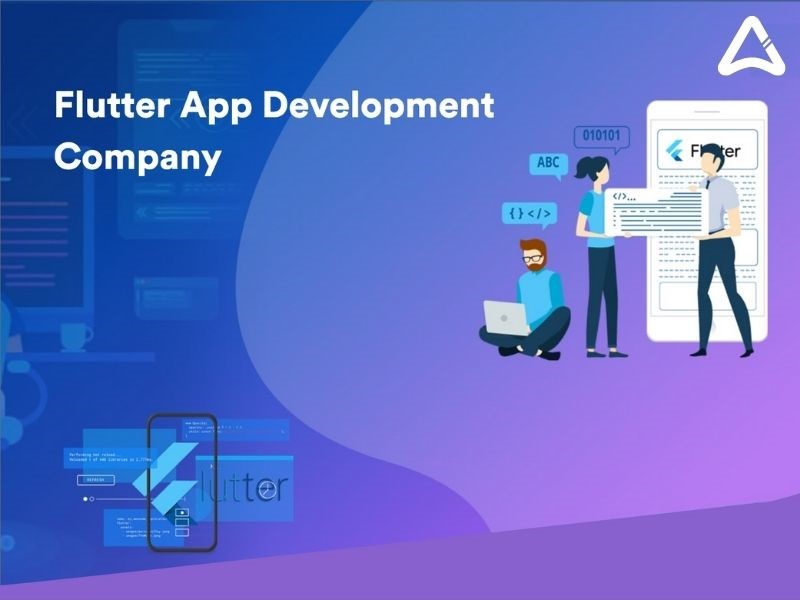Contents
Do you want to increase visibility & rankings for your Flutter app in the iOS & Android app stores? To accomplish this goal, it’s vital that you know how to use search engine optimization (SEO) techniques. Although SEO isn’t usually a phrase associated with mobile apps, there are still steps that can be taken to ensure you have an optimized Flutter app in order to drive organic search results & achieve higher rankings across all storefronts. In this article, we will take you through several tips on how to successfully employ SEO tactics adopted by the top app development companies so your App can stand out amongst its competitors.
Understanding SEO for Mobile Apps
SEO stands for Search Engine Optimization. It is the process of optimizing your digital content to rank higher in search engine results pages (SERP). While SEO is commonly associated with websites, the same principles apply to mobile applications as well.
In the context of mobile applications, SEO helps to improve visibility in the app stores & drive more downloads. Many factors impact a mobile app’s ranking in app stores, such as reviews, ratings, app size & relevance to a search query.
Optimizing Flutter Apps for SEO
Now that we understand the importance of SEO for mobile apps, let’s dive into the crucial aspects followed by the quality app developing company to optimize a Flutter app for SEO.
Conduct App Store Keyword Research
Keyword research isn’t only for web developers & content creators. It’s also vital for the mobile app development companies & their app developers. Before publishing your Flutter app, you must understand the search terms your target audience is using to find apps like yours. Remember, the app store’s search algorithm works like a typical search engine algorithm.
Start by conducting keyword research using tools like Google’s Keyword planner, SEMRush, & Ahrefs. These tools help you generate a list of search terms related to your app. You can also learn about the competition & identify keywords your competitors are using. Using a mix of your app’s name, category, & features as your primary keywords will help you get your app discovered by your target audience.
Consider the search volume, competition, & relevance while choosing your app’s primary keywords. Also, use long-tail keywords & LSI (Latent Semantic Indexing) keywords. These keywords help improve the context of your app by using related search terms.
Optimize Your Metadata
Your app’s metadata is the information that is displayed in app stores & search engines. Your metadata includes your app’s title, description, & keyword tags. It’s important to optimize these elements, so they accurately describe your app & include your target keywords.
The title of your app should be descriptive & easy to remember. It should also include your target keyword. Your app’s description should be well-written & informative, providing a clear understanding of what your app does. Finally, your keyword tags should include your app’s target keywords & related terms.
Use High-Quality Images & Videos
High-quality images & videos can help raise your app’s ranking by making it more appealing to users. App store algorithms take into account the quality of your app’s visuals, so it’s important to invest in professional-grade images & videos.
Your app’s screenshots & preview videos should showcase your app’s features & functionality, while also providing a clear understanding of what users can expect when they download it. You must make sure that the images & videos accurately represent your app to avoid negative ratings.
Improve App Size
App size is another critical factor when it comes to SEO. The size of the application affects download times & user experience. If an app is too large, it may deter users from downloading it. Optimize your app’s size & remove unnecessary features, compress app media, & employ the modern compression techniques to reduce app size. If you feel stuck anywhere, you can also take assistance from your preferred mobile app development company around.
Optimize Your App for Speed
A slow app can lead to poor user experience & lower ranking in app stores. Your app should be optimized for speed. You can reduce the app’s size, minimize HTTP requests & use appropriate caching methods.
Moreover, use the Flutter DevTools package used by Flutter application development services for speed profiling of your app. This package helps you identify parts of your code that are slow & fix them to improve the overall speed of your app. A fast-loading app delivers excellent user experience that leads to higher app rankings in app stores.
Incorporate Social Media & PR
Promoting your app through social media & PR can help boost its visibility & reach. You can leverage social media channels like Twitter, Facebook, & Instagram to showcase your app’s features & functionality, & engage with your target audience.
Once your app has been featured in a reputable publication or blog, make sure to share it across social media channels & in your app’s description. This can assist in enhancing your app’s credibility & increase user confidence in your app.
Last Thoughts
App optimization is an important part of the process of getting your app to rank higher in the stores. By following the steps outlined in this article, you can create a powerful Flutter app that will rank well & drive more users to your product. All in all, your success will come from consistently offering quality products & services — something that AppStudio can assist with their top flutter app development services in Canada.
Their experts have years of experience developing Flutter apps & know how to optimize them perfectly for SEO. To learn more about their flutter app development services, contact them today.


